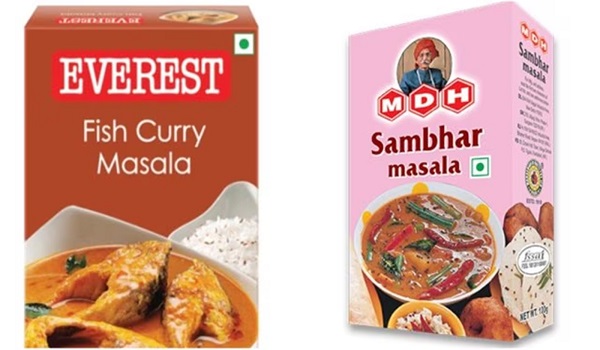Now Nepal has banned the sale and import of four Indian spice-mix products from MDH and Everest due to quality issues, joining Hong Kong and Singapore in the move. The ban was announced by Nepal’s Department of Food Technology and Quality Control on Friday.
The ban affects MDH’s madras curry powder, sambhar mixed masala powder, mixed masala curry powder, and Everest’s fish curry masala. The department cited suspicions of ethylene oxide contamination as the reason. Importers and traders have been instructed to recall these products from the Nepalese market.
“As residue contents of ethylene oxide are found to be exceeding the prescribed limit in these four products, the import and sale of these products are banned within the country as per Article 19 of the Food Regulation 2027 B.S.,” the department stated in a notice.
Matina Joshi Vaidya, the chief of the Department of Food Technology and Quality Control, mentioned that Nepal lacks the laboratory resources to conduct these tests locally. “The ban will be lifted when Indian authorities declare it safe,” Vaidya added.
Ethylene oxide is utilized as a pesticide and a sterilizing agent in medical equipment and spices to prevent illnesses caused by bacteria such as Salmonella and E. coli. According to the US Environmental Protection Agency, regular exposure to ethylene oxide increases the risk of certain cancers.
India, which exports over 200 varieties of spices to around 180 countries, reported a revenue of USD 4 billion from spices and related products in 2021–22, according to the Spices Board of India. However, the Federation of Indian Spice Stakeholders (FISS) warned that unresolved issues related to ethylene oxide contamination could lead to a 40% decline in spice exports in FY25.
The Food Safety and Standards Authority of India (FSSAI) is currently examining the quality of powdered spices from various brands. Regulatory bodies in New Zealand, the US, India, and Australia are also investigating the matter. Both MDH and Everest maintain that their products are safe, though they have not responded to requests for comment.
Previously, Hong Kong suspended the sale of these spices in April, followed by a similar recall order from Singapore.


